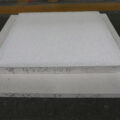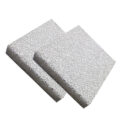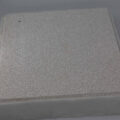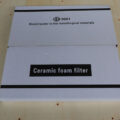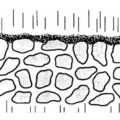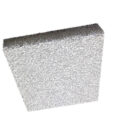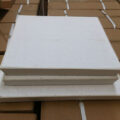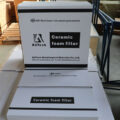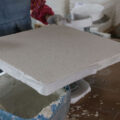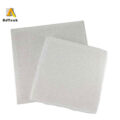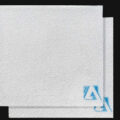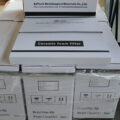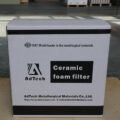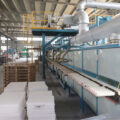Ceramic foam filter is used as the Dubai aluminum foundry filter, it can effectively filter the primary and secondary liquid solid non-metallic inclusions in the molten metal. The high-quality ceramic foam filter plays a very important role in improving the quality of castings. It can effectively reduce slag holes, improve the mechanical properties of machining allowance, improve the surface finish of castings, and extend the life.
The ceramic foam filter is a special ceramic product with a three-dimensional network structure that uses polyurethane foam as the precursor, dipped in a refractory slurry molding process, and sintered at a high temperature.
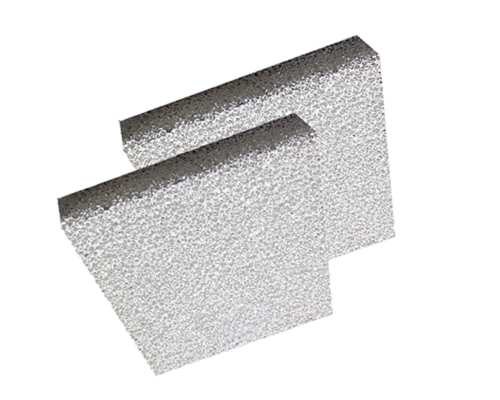
Dubai aluminum foundry filter is made of the basic raw material Aluminium Oxide. Alumina Ceramic Foam Filters are mainly for filtration of aluminum and aluminum alloys in foundries and cast houses. With their excellent resistance to attack and corrosion from molten aluminum, they can effectively remove inclusions, reduce trapped gas and provide laminar flow, and then the filtered metal is significantly cleaner.
Dubal operates one of the largest single-site aluminum production complexes in the world.
Built on a 480 hectare site, the state-of-the-art smelter complex comprises 1,573 reduction cells arranged in seven potlines, a 2,350 megawatt power plant, a desalination plant that produces 113.5 million liters of distilled and potable water a day, and various other facilities including a carbon plant, casting houses and port. The smelter produces more than 1 million tonnes of molten aluminum a year.
In order to obtain a pure aluminum liquid, Dubai Aluminum must undergo molten aluminum purification. Foam ceramic filters are commonly used in the filtration of molten aluminum. When the molten aluminum passes through the foam ceramic pores, the internal debris is deposited on the walls of the pores under the effects of fluid power, inertia, interception, collision, and adsorption, so that the clean molten aluminum enters the casting. factory.
The filtration efficiency of the foam ceramic board is directly related to the diameter of its micropores, but the diameter of the trapped debris is much smaller than the average diameter of the micropores. A filter plate with 12 holes/cm and a thickness of 50 mm can remove 80% of impurities such as slag over 100 um. The foam ceramic plate is usually replaced once per heat to ensure the passing capacity of the molten aluminum and prevent the debris and slag particles deposited in the flow channel from re-entering the molten aluminum.

